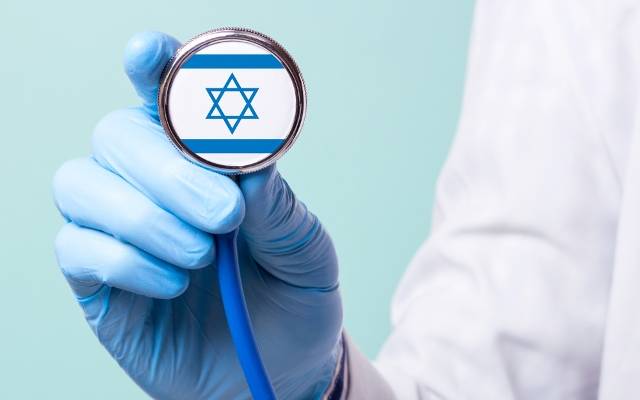Thanks to a new social-action project, Chinese coronavirus patients were able to ask Israeli primary care physician Dr. Rachel Libenson Vansh how to maintain proper health and hygiene while confined at home.
By Abigail Klein Leichman, ISRAEL21c
Using a Zoom video link over China’s Weibo social network, Israeli primary care physician Dr. Rachel Libenson Vansh answered Chinese coronavirus patients’ questions in English with immediate translation into Chinese.
This remarkable setup, which took place over a week ago, was the first in a series of interactive video broadcasts spearheaded by Israeli organization Innonation, which links talents, companies and organizations across borders through its hubs in Israel and China.
One hundred Israeli physicians have volunteered to speak remotely with quarantined COVID-19 patients on topics of concern — such as family and children; dermatology (including sensitivity to protective masks); diet; psychology (as well as dealing with anxieties); pregnancy; and signs of serious illness that require immediate attention.
Figures today show the COVID-19 virus has infected 86,584 people in more than 60 countries and caused 2,976 deaths. Many people who have been put into quarantine, or are self-isolated at home, are worried and fearful and have many questions about their situation and how to look after themselves.
“The health systems in countries affected by the coronavirus are under tremendous pressure. They find it difficult to deal with the medical needs of people living under quarantine and with the general population that fears going to clinics and hospitals,” says Amit Gal-Or, who cofounded Innonation in 2016 with his father, Amir, and brother, Raz.
“The impressive volunteering of the best doctors in Israel help realize this project and meet the tremendous demand for the necessary medical knowledge.”
“This Israeli volunteer initiative will provide them with the necessary knowhow to deal with the daily medical difficulties that currently are not being met.”
The online project will target people in China, Japan, South Korea, Italy, the United States, Israel and any other countries where there are quarantines and fears about going out in public.
Doctors from Major Medical Centers
The doctors who volunteered for the Innonation video project are from some of Israel’s major medical centers, including Sheba, Tel Aviv, Rambam, Wolfson and Soroka.
In cooperation with companies that agreed to supply practical technology and medical databases, Innonation has started operating broadcast stations at all the participating hospitals.
“The technology bridges the medical gap in these countries, while the recruitment of Israeli medical institutions and the impressive volunteering of the best doctors in Israel help realize this project and meet the tremendous demand for the necessary medical knowledge,” says Gal-Or.
Speaking to ISRAEL21c last Thursday, Amit Gal-Or said three sessions were completed with Chinese patients and another three are planned this week with patients recruited via social media in other countries.
“The way it works is that first we do a live session where people apply to join and send their questions. That is capped to about 100 people so we can have a real give and take,” says Gal-Or.
“Then we edit the videos and release them for publishing all over the world. It’s a mix of the personal and the necessary scale to help large numbers of people.”
The video project follows on Innonation’s previous initiative of recruiting donors for medical equipment sorely needed in China.
Board members and partners of Innonation and the Israeli Chamber of Commerce in China (IsCham) have so far donated some 500,000 pieces of protective gear including masks, gowns and gloves.
Gal-Or, 23, has lived and been educated in China for 12 years. He is currently in Tel Aviv, where Innonation has an office in addition to branches in Chinese regions including Beijing, Hangzhou and Hong Kong.
The Gal-Or family has been active in technology, telecommunications and real estate deals in the Chinese market for about 20 years.
“We are experts at connecting, and this issue of the coronavirus hit us very personally,” he says.
“We wanted to figure out ways to contribute aside from the donations of supplies. The Jewish tradition is about sharing knowledge. And the quality of expertise and technology in Israel’s medical field is very high quality. So we felt that the way to really contribute is through knowledge sharing.”
Innonation reached out to managers of several medical centers with which it has ties. “It was incredible to see how quickly doctors wanted to volunteer and managers wanted to support this project,” says Gal-Or.
Innonation has also established a company to facilitate the building of new hospitals and the transfer of Israeli medical technology. This global initiative is run by teams in China and Israel with the goal of improving medical systems and facilitating joint R&D projects internationally.
But the video project is Gal-Or’s focus for the time being. He acknowledged that Innonation doesn’t profit from this activity aside from the positive publicity it engenders.
“This is about connecting people in crisis with doctors and hospitals. We will continue until we see the virus disappear.”
